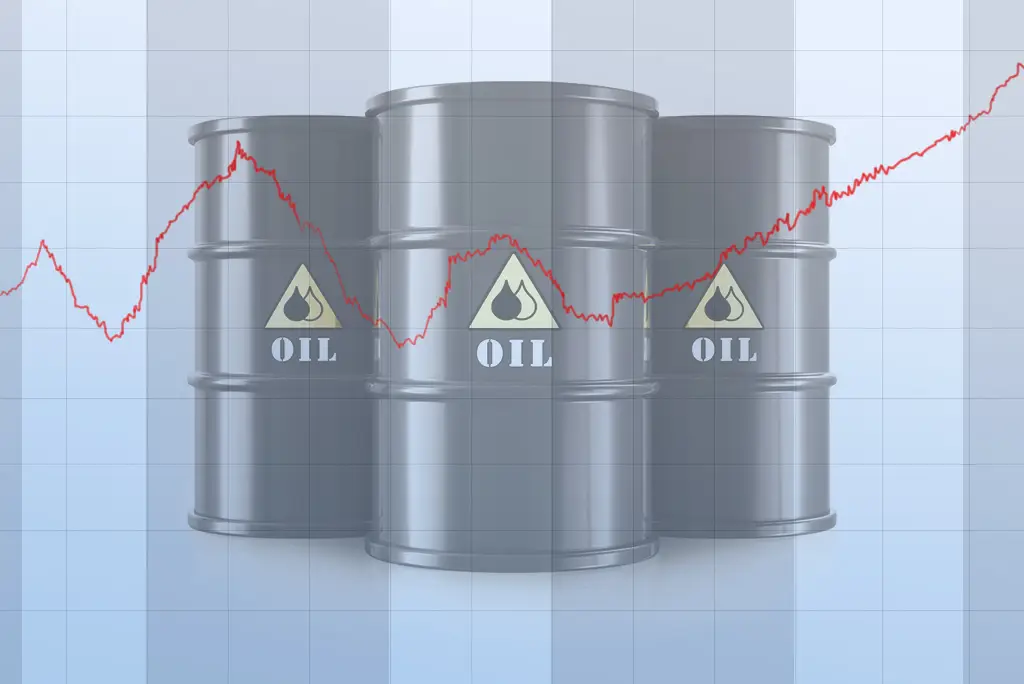Attack by Hamas on Israel has intensified the Middle East conflict, significantly impacting the global economy. This turbulence has caused a more than 5% surge in oil prices.
In response, investors have shifted towards safer assets such as gold, bonds, and the dollar while avoiding traditionally risky stocks.
West Texas Intermediate exceeded $87 per barrel, and Brent reached $89 as traders prepared for a possible escalation while anticipating a supply disruption.
The US announced the deployment of warships, and the Wall Street Journal claimed Iranian security officials were involved in planning the attack.
Middle East conflict sparks currency and Market volatility
Geopolitical instability created by this Middle East conflict boosted the dollar’s value relative to the euro and pound and strengthened the yen, a safe haven.
US stock futures initially declined, and Treasuries gained, but the latter’s gains were later reduced due to worries about potential inflation from higher oil prices.
Gold saw an increase of up to 1.2% in response to the uncertain geopolitical situation.
“The weekend’s events have clearly disrupted the region,” noted Capital.com’s senior market analyst Kyle Rodda.
He suggested that historical trends indicate these incidents typically result in short-term financial market instability. Rodda anticipates that investor anxiety may persist briefly until the potential for escalation subsides.
Ultimately, he expects a return to market stability once the risks significantly diminish.
Conflict in the Middle East arises as Hamas attacks on Israel
Notably, On October 7, 2023, amidst the ongoing Middle East conflict between Israel and Palestine, Palestinian militant groups led by Hamas initiated a significant invasion and offensive.
They breached the Gaza–Israel barrier and gained entry through the Gaza border crossings into nearby Israeli settlements and military installations, marking a pivotal moment in the Middle East conflict.
Hamas called this operation “Operation al-Aqsa Storm,” signifying the first direct confrontation within Israel’s boundaries since the 1948 Arab–Israeli War.
Bank of Israel takes measures amid Middle East conflict between Israel and Palestine
Amid Hamas attacks on Israel, The Bank of Israel announced plans to sell up to $30 billion in foreign exchange and provide up to $15 billion via swap mechanisms to bolster market stability. As the conflict in the Middle East continued into its third day, the shekel declined to its lowest point in seven years.
The repercussions of the attacks resonated across Middle Eastern markets on Sunday, resulting in a decline in stock prices.
Regional equity indices experienced notable drops, with Israel’s primary stock index, TA-35, witnessing its most significant decline over three years, plummeting by 6.5%.
Rising oil prices stoke global inflation concerns amid conflict in the Middle East
Elevated oil prices could exacerbate the existing global inflationary tensions, leaving investors deliberating the possibility of an additional Federal Reserve interest rate hike this year.
Guillermo Santos, head of strategy at Spanish private banking firm iCapital, cautioned that expanding this situation to oil-producing nations, notably Saudi Arabia, might increase crude oil prices, causing adverse inflationary consequences in the West.
Although the recent developments do not pose an immediate risk to oil supply, there’s apprehension among traders that it could escalate into a proxy conflict.
Iran, a significant oil producer and a backer of Hamas, raises concerns that any counteraction against Tehran might jeopardize vessel transit through the crucial Strait of Hormuz.
Asian markets navigate Middle East Conflict and economic challenges
In this phase of the Middle East conflict, Asian stock indices remained relatively stable, with energy-related stocks gaining strength due to heightened oil prices.
Mainland China witnessed a decline in stock prices as its market resumed trading following the Golden Week holiday.
In Hong Kong, stocks experienced an afternoon surge as markets reopened following a typhoon-induced closure.
Despite positive holiday data in China, confidence remained delicate, as stated by Hao Hong, partner and chief economist at GROW Investment Group. On Bloomberg Television, Hong highlighted the ongoing challenges for smaller businesses in China, citing the difficulty securing loans due to banks’ risk aversion.
While data indicated a yearly increase in tourism revenue, it only marginally surpassed its pre-Covid levels, indicating subdued consumer sentiment’s impact on economic growth.
The offshore yuan saw a slight uptick as the People’s Bank of China established a daily fixing rate stronger than traders’ expectations. South Korean and Japanese markets remained closed due to a holiday, with no active cash trading of Treasuries.
Bond Yields surge as US employment soars
On Friday, yields on 10-year and 30-year Treasuries stabilized after reaching levels not seen since 2007, around 4.9% and 5.1%, respectively, as global bond markets experienced a fifth consecutive week of sell-offs.
An unforeseen increase in US employment led swaps traders to assess a roughly equal likelihood of a rate hike by December.
Also on Friday, the S&P 500 surged 1.2%, breaking a four-week streak of losses.
In September, the US nonfarm payrolls report revealed an accelerated hiring rate, surpassing economists’ expectations by adding 336,000 jobs. The Bureau of Labor Statistics data indicated that the unemployment rate remained at 3.8%.
Read More: Stocks and Bonds Ease as Traders Pause After the November Rally
